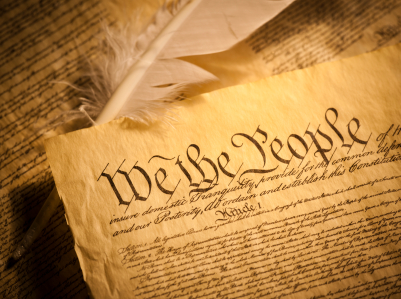When pro-aborts can’t win the argument with biological shell games and character assassination, they usually resort to disqualifying pro-life opinions from consideration by labeling them violations of America’s separation of church and state. So it’s worth spending some time on a broader look at the way abortion politics intertwines with religion.
Contrary to the insistence of abortion defenders, the case against abortion is not exclusively theological. It has two core factors: the empirical observation that individual human life begins at fertilization, and the moral/philosophical proposition that all human beings have an equal claim to live.
Clearly, the former point has nothing to do with religion. Admitting that zygotes, embryos, and fetuses are live human beings is simple biology. If protecting the right to life after birth isn’t “imposing religion,” then neither is concluding that such shared humanity entitles the pre-born to be included in that same protection. Indeed, pro-lifers are just advocating for a broader, more consistent application of the general right-to-life principle the rest of society already accepts, albeit selectively.
However, we’d be lying if we said there was no religious component to the pro-life cause. Many pro-lifers are driven to get involved because God commands, “Thou shalt not kill,” and because the Bible’s teachings inform them that our souls – the divine spark that makes us sacred, gives us our identity, and sets us apart from the rest of the animal kingdom – exist in our bodies from conception onward, meaning that abortion destroys someone who is every bit as worthy of love and respect as everyone else.
Does acting on that conviction violate the First Amendment? Not at all. First, the law regulates only the actions of government, not the motives of people who vote on them. I could vote for a certain policy for any reason – because I read a study supporting it, because I think God wants it that way, or because I had a dream where Bugs Bunny promised to give me a million dollars in return – and the policy itself would still be perfectly constitutional, as long as the Constitution allowed it. And contrary to the Supreme Court’s indefensible abortion precedent, the Constitution most certainly allows states to ban abortion, since the Tenth Amendment reserves for the states and the people all powers not expressly delegated to the federal government, and nothing else in the Constitution recognizes abortion “rights.” (Admittedly, whether Congress has the power to do so federally is a little trickier, but that dispute concerns enumerated powers and the extent of the Fourteenth Amendment; it has nothing to do with religion.)
Second, the foundation and purpose of American law aren’t quite as secular as pro-aborts would have you believe. The United States’ mission statement, the Declaration of Independence, asserts the nation’s right to a “separate and equal station” bestowed by the “Laws of Nature and of Nature’s God,” and proclaims that “[g]overnments are instituted among men” for the express purpose of securing the unalienable rights men are “endowed by their Creator with.” The Creator has a similarly prominent role in the works of John Locke and William Blackstone, two of the Founding’s most important philosophical influences. George Washington, John Adams, James Madison, Alexander Hamilton, and even the less orthodox Thomas Jefferson and Benjamin Franklin all perceived that liberty is deeply intertwined with man’s status as a divine creation.
The inescapable conclusion is that there’s one particular religious value that America does impose: the view that human life is sacred. Though the rationale may have been buried and forgotten over the years, government is imposing this religious value every time a police officer stops a mugging, every time a murderer is imprisoned, every time stolen property is returned – in short, every time the government steps in to prevent or rectify one person’s decision to trespass against the sanctity of another.
The purpose of the First Amendment isn’t to ensure that God and government never intersect, but to preserve liberty in all matters pertaining to man’s freedom of thought and conscience, and to his personal relationship (or lack thereof) with God. By calling for protection of unborn life, we’re not undermining the Constitution; we’re actually standing up for a more authentic application of its principles.







